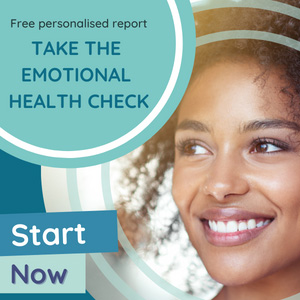The Formula For A Good Night's Sleep
Have you ever woken up in the morning and still felt tired? We’ve all been there, and you probably put it down to just not getting a good nights sleep. All through the day you might feel drained, grouchy and just a bit off-kilter – and that’s after just one night’s bad sleep! The reason is simple – sleep is a hugely important to our physical and mental wellbeing, so making sure you get a good night’s sleep every night is essential.
Why Do We Need Sleep?
If you want to get down to the absolute basics, we need sleep to survive. It’s just like eating or drinking – you can’t live without it. It’s an essential function that allows your body and mind to recharge, repair and get ready for the next day. There is still a lot of debate over what exactly the brain does when it sleeps, but what we do know is that sleep is the time your brain sorts information from the day, moves it into long-term memory, replaces and releases chemicals, solves problems and promotes healing within your body. The average adult need between 7 and 9 hours of sleep a night to achieve all of this, ensure proper cognitive and behavioural function, and feel well rested when you wake up.
What Happens When We Don't Sleep?
You might think you just get very tired when you don’t sleep properly. And true, if you just have a bad night or two, that might be the only ill effect. But if you consistently get not enough, or sub-par quality sleep, you’ll start to see some knock-on effects. Some of the issues associated with a chronic lack of sleep include:
- High blood pressure
- Increased risk of diabetes
- Heart attack, stroke, or heart failure
- Obesity
- Depression
- Hallucinations
- Trouble thinking clearly or concentrating
- Lower immunity
- Low sex drive
That’s a pretty scary list! And it’s scary for a reason – our bodies need sleep, and without it a lot of our critical systems start to struggle and eventually shut down. You feel sluggish, irritable and like even the smallest task is a huge challenge.
What Causes Bad Sleep?
Sleep is a tricky thing. While it’s essential to our health and wellbeing, a lot of things can disturb it. As a result, 36% of adults in the UK struggle to get enough sleep on a weekly basis, and 1 in 5 struggles to fall asleep every single night. Difficulty sleeping can be caused by all sorts of things, some environmental, some emotional, some hormonal. The most common issues people face include:
- Too much stimulation before bed
- Irregular work schedules
- Sleep apnea
- Noise
- Discomfort
- Melatonin imbalance
- Blue light before bed
- Lack of sunlight
- Pain
- Caffeine
- Certain medications
- Stress & anxiety
- Depression
The list goes on and on. Some of those things, like your mental state, caffeine intake and your sleep environment you can control - but others, like pain, hormonal imbalances and medical conditions are harder to manage.
7 Habits To Help You Sleep Better
Limit food before bed: Whenever you eat, your body uses energy to digest it. As our bodies get ready to sleep, our metabolisms slow down to a minimum as your body uses that energy in other ways. But when you eat in the evening, your body suddenly needs all that energy to digest the food. Not only does this affect your ability to sleep and get a restful night, but it can actually cause weight gain too.
Avoid caffeine & alcohol:Did you know that caffeine has a half life of 6 hours? This means that 6 hours after you drink it, half of the caffeine is still in your system. Since caffeine is a stimulant, this can make it difficult to sleep effectively! So try to limit the amount of caffeine you drink after about midday, and give it a chance to clear your system. The same goes with alcohol, since it has been linked with poor sleep quality and duration, and can even cause insomnia symptoms.
Create the right environment: When it comes to getting a good night’s sleep there is such a thing as the ideal environment. Start out with a room that’s cool and dark, using blinds or curtains to block out any unwanted light. Keep the room quiet, or use a white noise machine if you struggle with traffic noise or similar. Equip yourself with a comfortable, good quality mattress and pillow, and high-quality bedding to avoid irritation during the night.
Set a sleep routine:Our brains love routine. Going through the set activities helps signal what’s coming next, and means your brain can get ready to respond to it. Having a good sleep routine in place will help encourage your brain into sleep mode. Your sleep routine can look however you like, so long as it’s a set of things you can repeat every evening before bed. Whether that’s taking a bath, listening to some music in a dim room, reading a book or doing some relaxation exercises, make this a sacred part of your day.
Exercise:Regular exercise is a fantastic way to help your natural sleep rhythm, but the time you do that exercise makes a big difference. Experts actually recommend avoid exercising at least one hour before bedtime, as it causes spikes in endorphins and adrenaline which make it harder to fall asleep.
Limit devices: Most of us aren’t far from a device at any point in the day, and spend a lot of our time looking at screens. But more screens put out blue light, which tells your brain to stop producing melatonin. This is known as the ‘sleep’ hormone, and controls your wake-sleep cycle. So using devices in the hour before bed can make it more difficult to fall asleep and stay asleep, as well as making it a struggle to wake up in the morning.
Try mindfulness: Before bed is the perfect time to try out some mindfulness. It helps to centre and calm your mind, banish the stress of the day and get you in the right headspace to sleep. The practice also helps you develop compassion for yourself, giving you the mental resilience to deal with stress more effectively and lay the foundations for a good night’s sleep. I’ve created an audio track specifically to help with a mindfulness wind down before bed and aid sleep, which you can download here.
I want to add a caveat to this list, and it’s a really simple one. If you’re going to use this list to build new, healthy habits, be kind to yourself as you do. It can take your brain anything from a few weeks to a few months to integrate a new habit into your routine, and so it will take you a bit more effort and mental energy to remember to do these things while you’re forming those connections in your brain. During this time you’ll probably forget to do them at least a few times, and that’s ok! Just focus on getting back on track for the next day. And instead of focusing on if you did them every single day or not, instead notice how you feel better, have more energy and feel calmer and more confident.
If you’re struggling with sleep, Solution Focused Hypnotherapy is a great option for you. Sessions can help you reduce your general levels of anxiety and calm your thoughts at night, as well as changing your thought patterns so that you’re not trapped in that cycle of negative thinking or worry. It also teaches some great tools for calming and relaxation before bed, which can help your brain transition between awake and asleep and actually stay there.
If you’re ready to tackle the sleepless nights with Solution Focused Hypnotherapy, I would love to help. Start by getting in touch to book a free initial chat so that we can explore your situation and decide if hypnotherapy will be right for you and what your personalised treatment plan might look like. Click here to take your first step to a social anxiety free life.
Feel free to book an initial chat or get in touch to ask for advice or ask questions







